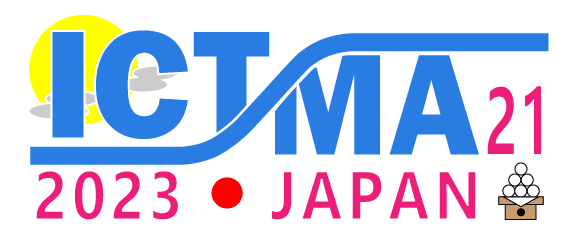Keynote
Joint Presentation
CONCEPTUALISING THE RELATIONSHIP BETWEEN MATHEMATICAL MODELLING
AND INTERDISCIPLINARY STEM EDUCATION
Monday, September 11, 11:00-12:30
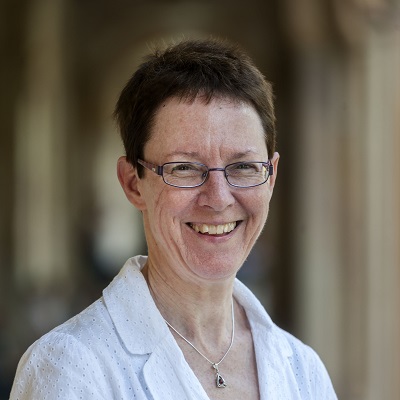
Prof. Merrilyn Goos
University of the Sunshine Coast, Australia
Merrilyn Goos is a mathematics educator and mathematics education researcher who has worked in universities in Australia, the UK and the Republic of Ireland. She is currently Professor of Education at the University of the Sunshine Coast in Australia and from 2017-2020 was Professor of STEM Education and Director of EPI*STEM – the National Centre for STEM Education at the University of Limerick, Ireland. Previously she worked for 25 years at The University of Queensland, Australia, in a variety of academic roles including Head of the School of Education and Director of the University’s Teaching and Educational Development Institute.
Following her first career as a food technologist, Merrilyn taught mathematics, chemistry, and food science in secondary schools and technical colleges in Australia before moving to the university sector as a teacher educator. Her academic research has investigated students’ mathematical thinking, the impact of digital technologies on mathematics learning and teaching, interdisciplinary mathematics learning in the context of numeracy and STEM education, the professional learning and development of mathematics teachers and mathematics teacher educators, curriculum and assessment reform in schools and higher education, and gender equity in STEM education.
Merrilyn has served as Editor-in-Chief of Educational Studies in Mathematics, one of the two highest ranking international journals in mathematics education research and she is founding co-Editor-in-Chief of Research in Integrated STEM Education, a new journal to be published by Brill from 2023. She has held leadership roles in mathematics education at the national and international levels. For example, she was President of the Mathematics Education Research Group of Australasia (MERGA) and is currently Vice-President of the International Commission on Mathematical Instruction.
Merrilyn’s research has been supported by numerous grants from the Australian Research Council and Australian public sector organisations. While working at the University of Limerick she led or participated in teams that were awarded research funding from the EU Horizon 2020 scheme, Erasmus+, Science Foundation Ireland, the National Council for Curriculum and Assessment, the Department of Education and Skills, the Higher Education Authority, the National Adult Literacy Agency, and the Irish Teaching Council. In 2022 she was awarded MERGA’s Career Research Medal for sustained and distinguished achievement in mathematics education.
Merrilyn is the lead author or editor of numerous research volumes and teacher education reference texts, including Teaching Secondary School Mathematics (published by Routledge), which in 2008 won an Australian Award for Excellence in Education Publishing. Her professional experience includes service as Chair of the State’s Mathematics Syllabus Advisory Committee, overseeing the review and revision of every mathematics syllabus used in Queensland primary and secondary schools, and membership of the OECD’s Strategic Advisory Group that prepared the position paper for the PISA 2021 Mathematics framework.
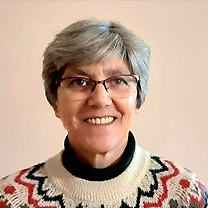
Prof. Susana Carreira
University of Lisbon, Portugal
Susana Carreira received her Ph.D. in mathematics education from the University of Lisbon. She is Associate Professor at the Faculty of Sciences and Technology of the University of Algarve, where she has been teaching mathematics courses to undergraduates in science, engineering, and management, as well as mathematics education courses to prospective secondary mathematics teachers, and to master students in mathematics education. For several years she has collaborated with the Institute of Education of the University of Lisbon, as Invited Associate Professor, where she contributes to doctoral seminars and supervises PhD students in mathematics education. Susana Carreira has also been participating in the Postgraduate Program in Teaching of the University of Vale do Taquari – UNIVATES, in Brazil, where she teaches courses on mathematics education and research methods, as well as supervises master and doctoral dissertations.
As a mathematics education researcher, she is a member of UIDEF, the research centre in education based at the Institute of Education, in Lisbon. Her research interests and activities have spanned across different domains in mathematics education. Since her master’s degree, when she investigated secondary students’ use of the spreadsheet in solving applied problems, her work on digital technologies in mathematics education has continued, both in relation to mathematical problem solving and to mathematical modelling. For more than a decade, she was involved in organizing and running inclusive web-based problem-solving competitions, in the south of Portugal, targeting students from grades 5 to 9. This extended activity was at the origin of the research project Problem@Web, where she was the leading investigator. It also fuelled some other lines of her work, namely mathematical creativity, attitudes, and emotions in mathematical problem solving, and the nature of techno-mathematical fluency.
Much of her research over the years has focused on the teaching and learning of mathematical modelling. Her PhD thesis addressed the production of meaning by undergraduate students in solving modelling problems, considering the relationship between models and conceptual metaphors. Her work has been addressing different aspects of students’ modelling processes, such as the cognitive processes involved in modelling problems or the influence of experimental work on students’ modelling thinking. More recently, she has been interested in integrated STEM education, specifically in the context of interdisciplinary projects and vocational education, in close connection to her work on mathematical modelling.
Susana Carreira has been part of the ICTMA Community for several years and served has Elected Member of the International Executive Committee. She has attended and participated in many of the ICTMA conferences and was a member of the local organizing committee of the ICTMA-9 held in Lisbon, in 1999. From 2009 to the present, she has been actively involved in the CERME conferences as leader or co-leader of the Thematic Working Group on applications and modelling. She was also co-chair of the Topic Study Group on mathematical modelling and applications at ICME 11 and ICME 14.
She is author and co-author of books and articles in national and international journals, and currently the editor-in-chief of the research journal Quadrante. In 2021, she was guest editor, with Werner Blum, of a double thematic issue of the journal Quadrante devoted to mathematical modelling in the teaching and learning of mathematics.
Plenary Lecture 1
TEACHER EDUCATION AND MATHEMATICAL MODELLING:
PRE-SERVICE TEACHERS’ PROFESSIONAL COMPETENCE FOR THE TEACHING OF MATHEMATICAL MODELLING
Plenary Lecture 2
IN THEIR OWN WORDS: EXPLANATIONS OF STEM STUDENTS’ REASONING DURING MATHEMATICAL MODELLING
Plenary Lecture 3
LESSON STUDY AND ITS RELATIONS TO MATHEMATICAL MODELLING
Tuesday, Sep 12, 9:30-10:30
Wednesday, Sep 13 9:30-10:30
Thursday, Sep 14 15:45-16:45
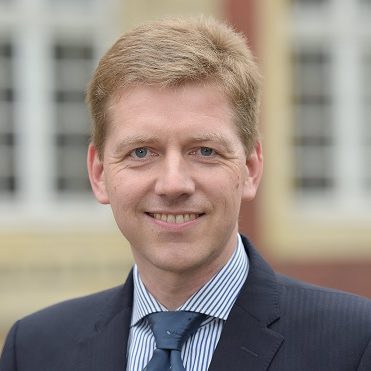
Prof. Gilbert Greefrath
University of Münster, Germany
Gilbert Greefrath is Professor of Mathematics Education with a focus on secondary education at the University of Muenster, Germany.
He studied mathematics, physics and computer science at the University of Muenster and received his PhD in mathematics. He then worked as a teacher at a comprehensive school and then as a research assistant at the University of Wuppertal (Germany). He held a professorship for mathematics and mathematics education at the University of Education in Karlsruhe and then at the University of Cologne. In 2011 he moved to the University of Muenster, where he now researches and teaches in mathematics education with a focus on secondary education. He was executive director of the Institute for Education in Mathematics and Computer Science at the University of Muenster, has been vice dean for studies since 2018 and has had several calls to other universities.
Gilbert Greefrath is a member of the scientific advisory committee of the German Journal for Mathematik-Didaktik, on the editorial board of a German journal for mathematics education in research and practice, and a member of the advisory board of the German Society for Mathematics education. At the ICME conference in 2021, he was chair of the TSG Mathematical applications and modelling in mathematics education. He is also Elected Member of the International Executive of ICTMA.
His areas of work include mathematical modelling, the use of technology and higher education didactics. For example, he has developed tutorials in mathematics for first-year engineering students and investigated how digital tools or a solution plan can be used to promote the modelling skills of students. A project on a fully digital textbook compares the competencies of learners working either with the digital textbook or with corresponding analogue materials. Within the framework of a teaching-learning laboratory for mathematical modelling, professional competences for modelling of prospective teachers are promoted and investigated. Digital media are also used in a variety of ways.
Gilbert Greefrath works with the German Institute for Quality Development in Education in the evaluation of tasks for examining educational standards in mathematics. In addition, he is a sub-project leader in a project on teaching-learning laboratories in the German Quality Offensive Teacher Education. Within the framework of a BMBF project, he is researching conditions for success in the use of smartphones owned by students in mathematics and science lessons.
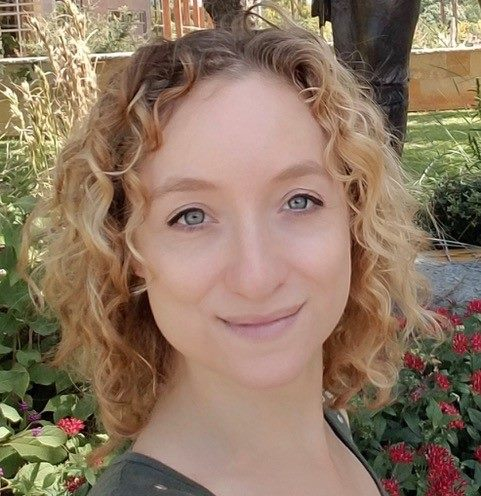
Associate Prof. Jennifer A. Czocher
Texas State University, USA
Jennifer A. Czocher received her Ph.D. from The Ohio State University in Mathematics Education in 2013. She is currently an Associate Professor Mathematics at Texas State University. As a 2018 Australia Endeavour Fellow, she worked closely with faculty at Australian Catholic University on improving teaching and learning of mathematics through mathematical modeling. Her main research interest, supported by an NSF CAREER award (#1750813), concerns how individuals learn to use mathematics as a representational system and the role teacher questioning may have in helping individuals coordinate their mathematical and non-mathematical knowledge. The project uses mixed methods to uncover which scaffolding strategies are most promising for improving undergraduate STEM students’ modeling competencies and why. She also enjoys thinking about epistemological, methodological and philosophical issues in mathematics education, students’ mathematical thinking and cognition, and research in undergraduate mathematics education (RUME).
She has been an active member in ICTMA since attending ICME in Seoul (2012) and has published more than 20 research reports, practitioner articles, and book chapters on mathematical modeling.
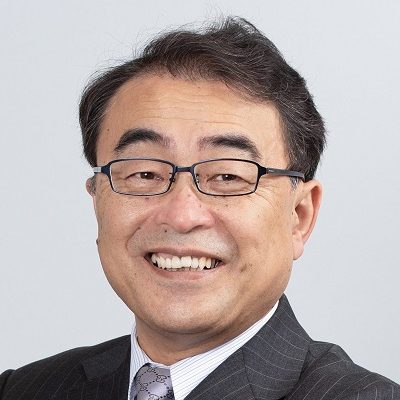
Prof. Yoshinori Shimizu
University of Tsukuba, Japan
Professor Yoshinori Shimizu, Ph. D is is a mathematics educator who works at Faculty of Human Sciences, University of Tsukuba, one of the major research institutions in Japan. He currently serves as the Chair of Degree Programs in Education.
He was appointed at Tokyo Gakugei University in 1990 as a research associate and then worked at TGU as an associate professor in mathematics education from 1994 to 2005. Before joining to TGU, he taught mathematics at Meikei High School for four years as a part-time teacher. In 1997 he studied at Indiana University (USA) as visiting scholar. In 2005, he moved to University of Tsukuba as an associate professor of mathematics education. Since 2009 he has been working as a professor of mathematics education at UT.
He was a consultant of the first (1995) TIMSS Videotape Classroom Study. Also, he was a member of Mathematics Expert Group (MEG) for OECD/PISA 2003, 2006, 2009. He is one of three founders of Learner’s Perspective Study (LPS), with David Clarke and Christine Keitel, that is a sixteen countries comparative study on mathematics classrooms and has been the Japanese team leader of the project. He participates in ongoing International Lexicon Project led by David Clarke and coordinated by Carmel Mesiti at University of Melbourne.
He was a co-chair of ICMI Study 24, School mathematics curriculum reforms: Challenges, changes and opportunities with Renuka Vithal. The study conference of ICMI Study 24 was held in November 2018 in Tsukuba and the Study Volume will be published soon. He is the president of Japan Society of Mathematical Education since 2020 and now in his second term.
He served as the chair of the committee for the National Curriculum Guideline (The Course of Studies) for Elementary Mathematics in Japan. He has published Books and Journal articles published internationally. Most recently, he was one of the guest editors (Yoshinori Shimizu, Berinderjeet Kaur, Carmel Mesiti, Man Ching Esther Chan) for the special issue of ZDM-Mathematics Education: Understanding complexity in the mathematics classroom: In memoriam David Clarke (Volume 54, issue 2, May 2022).
Panel
RELATIONS AMONG PROBLEM SOLVING/POSING, CREATIVITY AND MATHEMATICAL MODELLING
Friday, Sep 15 9:30-11:00
Chair
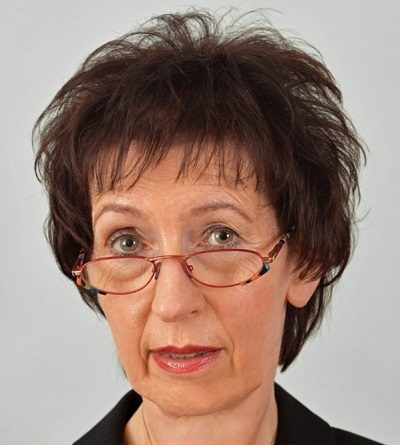
Prof. Gabriele Kaiser
University of Hamburg, Germany
Gabriele Kaiser holds a master’s degree as a teacher for mathematics and humanities for lower and upper secondary level. She completed her doctorate in mathematics education in 1986 with a study on applications and modelling supervised by Werner Blum. The thesis war covering theoretical aspects such as an analysis of the historical and the recent discussion on applications and modelling as well as empirical aspects, namely the possibilities of this kind of examples in mathematics teaching. These research works were extended in new projects on modelling in mathematics teaching together, amongst others with colleagues from the mathematics department.
International comparison in mathematics teaching is one of the main fields of research of Gabriele Kaiser and therefore became the subject of her post-doctoral study, which comprised a comparative study on mathematics teaching in England and Germany.
Since 1998, she is full professor for mathematics education at the Faculty of Education of the University of Hamburg. Her areas of research are empirical studies on teacher education and teachers’ professionalism, modelling and applications in school, international comparative studies, gender and cultural aspects in mathematics education. She was convenor of the 13 th International Congress on Mathematical Education, which took place in Hamburg in 2016 with more than 3500 participants. Forty books have come out in the frame of this congress edited by her.
Gabriele Kaiser’s most recent projects deal with teacher education, partly under an international perspective starting from the IEA Teacher Education Study in Mathematics (TEDS-M) on the efficiency of teacher education in various countries at primary and secondary level. Several follow-up studies – with Sigrid Blömeke and Johannes König – have been carried out in the frame of longitudinal studies and studies integrating knowledge and teacher noticing. A most recent study focuses on inclusive mathematics education and teacher professionalism
Together with Eva Arnold Gabriele Kaiser is directing the large-scale project ProfaLe “Professional Teachers‘ Acting for Promoting Subject-based Learning under Changing Societal Conditions“ within the framework of the „Quality Campaign for Teacher Education“). She is focusing the integration of subject teaching and teaching of mathematics education within teacher education. The project has started in 2015 and will last until 2023.
Since 2005 she is editor-in-chief of the high-ranking journal ZDM –Mathematics Education, which is since 2020 in SSCI. In addition, she is editing several book series at national and international level amongst others International Perspectives on Mathematical Modelling. Since 2019 she is president of the ICMI affiliate group “The International Community of Teachers of Mathematical Modelling and Applications” (ICTMA). From 2017 to 2021 she was a professorial fellow at the Institute for Leaning Sciences and Teacher Education at the Australian Catholic University in Brisbane (Australien). Currently, she holds an additional 0.2 professorship at Nord University in Bodø (Norway).
Panelists
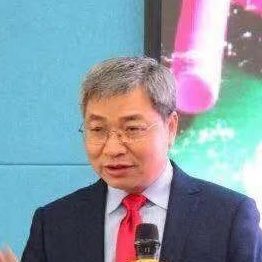
Prof. Jinfa Cai
University of Delaware, USA
Jinfa Cai is the Kathleen and David Hollowell Professor at the University of Delaware, and a Fellow of American Educational Research Association. Jinfa received his B.S. in mathematics from Hangzhou Normal University, M.Ed. in mathematics education from Beijing Normal University, and his Ph.D. in Cognitive Studies (in mathematics education) from the University of Pittsburgh. He served as the Editor-in-Chief for the Journal for Research in Mathematics Education (2017-2020). He also served as Program Director at the USA National Science Foundation. He is the Editor of the 2017 Compendium for Research in Mathematics Education, by NCTM. Currently, he is a co-Editor-in-Chief for the Research in Mathematics Education book series by Springer (He is always looking for high quality book proposals). His research is well-funded from various funding agencies, such as the USA National Science Foundation, Department of Education, and Spencer Foundation. Currently, he is working on a longitudinal research project on problem posing. In 2017, Jinfa received the University of Delaware’s College of Arts and Sciences’ Outstanding Scholarship Award, which is historical for a mathematics education researcher to receive such a prestigious award (competing with researchers in other fields). In 2018, he received the Webber Award, honoring his significant contribution to the State of Delaware’s mathematics education. He has been a consultant for a number of research projects at various institutions, including Educational Testing Services (ETS), American Institute for Research (AIR), National Assessment Governing Board (NAGB), and American Council on Education (ACE). Jinfa loves reading, travel, and scholarly collaboration.

Prof. Roza Leikin
University of Haifa, Israel
Dr. Roza Leikin is a Full Professor of Mathematics Education and Gifted Education at the Faculty of Education, University of Haifa. Since October 2020, she serves as the Faculty Dean. Dr. Leikin is the Establishing Director of the RANGE Center – the Interdisciplinary Center for the Research and Advancement of Giftedness – and Co-chair of the Neuro-cognitive laboratory for the investigation of creativity, ability and giftedness in the University of Haifa.
Prof. Leikin received the degree of Doctor of Sciense from the Department of Education in Technology and Science, Technion – Israel Institute of Technology. Her research and practice focuses mathematical creativity and ability, task design, teachers’ professional potential, and integration of neuro-cognitive research to the field of mathematics education.
From 2015-2020 she was the Head of the Math. Ed. Department and from 2009-2015 she served as the head of the Graduate ‘Gifted and Talented Education’ program in the University of Haifa. From 2012-2017 she served as the President of the International Group for Mathematical Creativity and Giftedness. From 2013 to 2017 she was the Head of the National Advisory Board in Mathematics Education of the Israeli Ministry of Education. Since 2013 she has been a Senior Mathematics Education Editor of the International Journal of Science and Mathematics Education. Since 2018 she had held the position of Honorary Chair Professor at the School of Education of the Tsing Hua University in Taiwan.
She has received over 30 grants for basic and translational research projects (overall above 10 million US$). She has edited 12 volumes related to research in mathematics education and gifted education, and has published more than 160 papers and chapters in peer reviewed research journals, books, and refereed conference proceedings.
Prof. Leikin leads several R&D projects devoted to instructional design and to the professional development of mathematics teachers, projects which are aimed at developing expertise, creativity and literacy in students and teachers. Multiple Solution Tasks and Mathematical Modeling Tasks are the major instructional, professional development, and research tools in these projects.
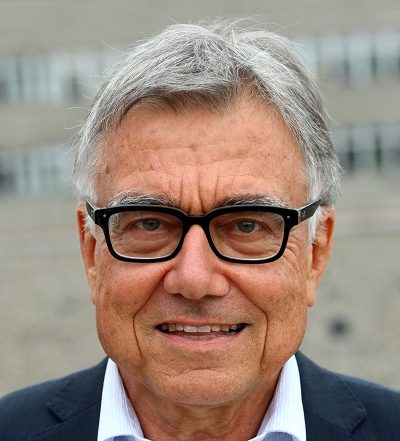
Prof. Werner Blum
University of Kassel, Germany
Werner Blum was born in 1945 and received his Diploma in mathematics in 1969 and his Ph.D. in pure mathematics in 1970, both from the University of Karlsruhe. From 1975 he was a full professor of Mathematics Education at the University of Kassel, until his retirement in 2013. From 1995 to 2001 he served as the President of the GDM, the mathematics education society of the German speaking countries. In 2006, he received the Archimedes Award of the MNU, the German mathematics and science teachers’ society, and in 2021, he was a recipient of the Henry Pollak Award, the research career medal of ICTMA, the International Community of Teachers of Mathematical Modelling and Applications. His publications comprise more than 300 articles in journals and books as well as 45 books that he has co-edited or co-written.
Werner Blum’s research areas include empirical investigations into the teaching and learning of mathematics and into mathematics teachers’ professional competencies, including in interdisciplinary contexts, with a focus on the secondary school level. Another main focus of his work is the quality development of mathematics teaching, both at a general and a concrete level. Among other accomplishments, he was a co-author of the German Education Standards in mathematics for the lower and upper secondary level, and a member of the German commission for the final school examination (Abitur) in mathematics until 2021. He has worked particularly in the area of modelling and applications in mathematics education, both empirically and conceptually, and acted as a continuing editor of the ICTMA Proceedings from 1993 to 2017. He was the editor-in-chief of the study volume from ICMI Study 14 on Applications and Modelling in Mathematics Education, published in 2007, and was a co-author of a textbook on the learning and teaching of mathematical modelling, published in 2020. In 2012, he gave a plenary lecture at ICME-12 on this topic and is currently involved in a German – South African project on comparative studies into teaching approaches for mathematical modelling. From 2000 to 2015, he was a member of the international PISA Mathematics Expert Group.
Special Lecture
IMMC: CELEBRATING 10 YEARS OF INFLUENCING EDUCATIONAL CHANGE
Monday, Sep 11 17:30-18:30

Associate Prof. Ben Galluzzo
Clarkson University, USA
Ben Galluzzo is an Associate Professor of Mathematics, Associate Director of Clarkson University’s Institute for STEM Education as well as the Head of School for the University’s early college program, The Clarkson School. He holds a master’s degree in mathematical finance from Boston University and a Ph.D. in applied mathematics and computational science from the University of Iowa.
In addition to his institutional roles, Ben regularly teaches math modeling and promotes mathematics as a tool for investigating and developing understanding of real-world issues through a variety of funded projects that provide him the opportunity to develop curriculum, run professional development workshops, engage with professional learning communities, and provide STEM outreach activities for students at all grade levels.
He is a co-author of the Guidelines for Assessment and Instruction in Mathematical Modeling Education Report and two other books on mathematical modeling published by the Society for Industrial and Applied Mathematics and was a recipient of the Mathematical Association of America’s Henry L. Alder Award for Distinguished Teaching by a Beginning College or University Mathematics Faculty Member.
Ben’s present research focus is on both the development of an online environment to support student learning of mathematical modeling and investigating how teachers learn to do and teach mathematical modeling. He currently serves as the Director for both the Consortium for Mathematics and Its Applications’ High School Mathematical Contest in Modeling and the International Mathematical Modeling Challenge.
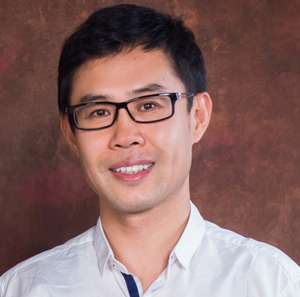
Alfred Cheung
NeoUnion ESC Organization, Hong Kong, China
Alfred Cheung, as an educator and entrepreneur in education and algorithm-driven innovation technology, is enthusiastic in promoting mathematical and modeling education. He serves for sponsorship and organization of International Mathematical Modeling Challenge (IM2C or IMMC) and its Greater China Committee. He is a member of the Steering Committee of Hung Lung Mathematics Awards (HLMA) of Hong Kong. He is a founding director of Hong Kong Society for Industrial and Applied Mathematics (HKSIAM). He chaired the LOC of ICTMA-19.
Alfred has more than 20 years of managerial and entrepreneurial experience in educational institution, private firm, NGO, and public committee, possessing expertise and enthusiasm in innovation and technology, and cooperation between industry, education and research in pursuing value creation for public good. He co-founded and managed technology firms, social enterprises and NGOs in Hong Kong winning local and global reputation. He successfully started up international programs in STEM fields for identifying and incubating global talents in algorithm, modeling, and computing.
Alfred Cheung currently serves as executive director of tech-firms in smart city, edutainment and fintech. He acquired Bachelor in Mechanical Engineering from Tsinghua University, Master in Education, Tsinghua University, and M.Phil in Economics, The Chinese University of Hong Kong.
